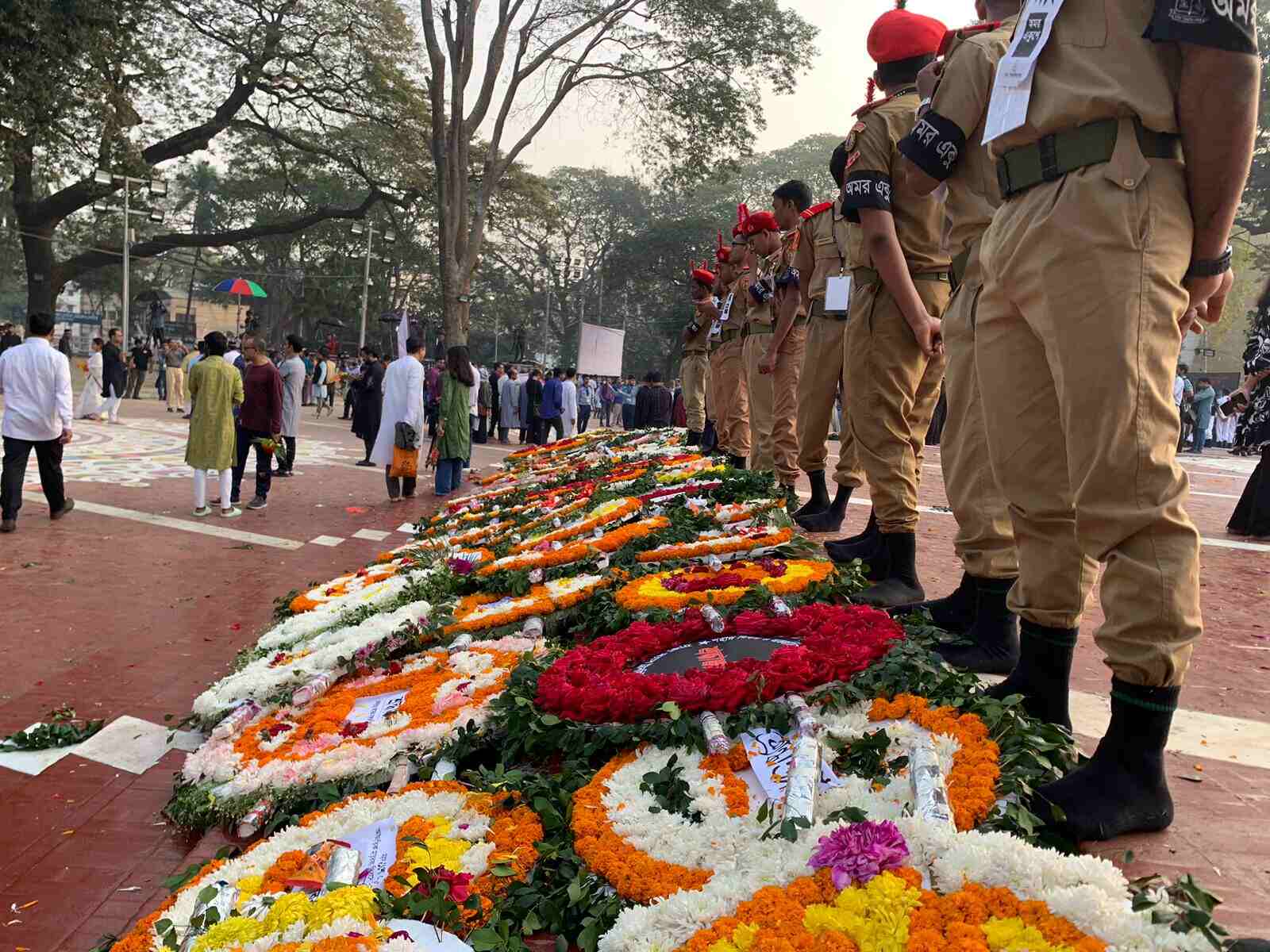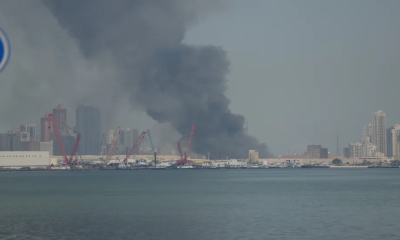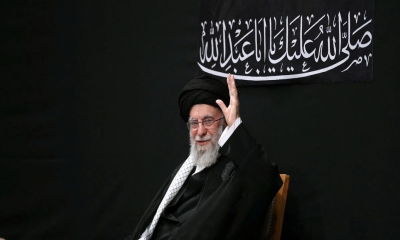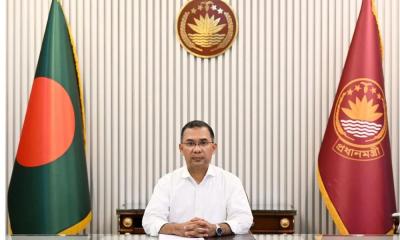The nation is paying glowing tributes to language martyrs today on the occasion of `Shaheed Dibash` (Martyrs Day) and the International Mother Language Day.
People from all walks of life are paying homage to the memories of the language movement martyrs, the valiant sons of this soil who made supreme sacrifice to establish the rights of the mother tongue, Bangla, in 1952.
The day will also being observed around the world as the UNESCO recognised the 21st February (Ekushey February) as the International Mother Language Day on November 17, 1999.
This year`s theme of the day is "Multilingual education: a pillar of learning and intergenerational learning,` is worthwhile".
President Mohammed Shahabuddin and Prime Minister Sheikh Hasina led the nation to pay respect to language martyrs by placing wreaths at the Central Shaheed Minar beside Dhaka Medical College and Hospital at one minute past zero hour.
President and Prime Minister issued separate messages paying rich tributes to those who embraced martyrdom on the day.
In his message, President Mohammed Shahabuddin called for proper practice and preservation of the Bangla language and culture.
The spirit of Amar Ekushey is the incessant source of inspiration for protecting own languages and culture of the people of different languages across the world, he said.
Prime Minister Sheikh Hasina, in her message, extended her sincere greetings to the people of all languages and cultures of the world, including Bangla on the occasion of the great Martyrs` Day and International Mother Language Day-2024.
UNESCO and Bangladesh have jointly been celebrating this day with due dignity since 2000, she said.
The importance of the language movement in the history of the Bengali liberation struggle is immense as the foundation for a non-communal, democratic, language-based state system was laid through this movement, she said.
The day is a public holiday.
In observance of the day, the Central Shaheed Minar premises is being decorated with paintings, graffiti, buntings and selected verses on the mother language.
Tight security measures will be enforced around the Central Shaheed Minar, its adjoining areas and Azimpur graveyard of the language martyrs.
Different political, social, cultural, professional bodies including the ruling Awami League, have taken various programmes including cultural functions to observe the Amar (immortal) Ekushey in a befitting manner.
The national flags will be kept half-mast in a proper manner having accurate size at all the buildings of government, semi-government, autonomous and private organisations and educational institutions.
All educational institutions, local government bodies, district and upazila administrations, Bangladesh missions abroad will take proper measures to observe the day.
Fateha and Qurankhwani will be offered at Azimpur graveyard and special prayers will be arranged at mosques and all other places of prayers across the country seeking eternal peace of the souls of the language martyrs.
On the occasion, road islands and other important places in the capital will be decorated with festoons inscribed with letters of different languages including Bangla.
Public and private media will air special programme while newspapers will publish special supplements marking the day.
Uninterrupted power and water supply will be ensured around the Central Shaheed Minar and its adjoining areas while required numbers of mobile toilets will be set up in the areas.
In order to ensure emergency medical services, medical camps will be set up in the Shaheed Minar areas and a sufficient number of ambulances will be kept ready to this end.
Bangladesh missions abroad will organize different programmes, including placing wreaths at Shaheed Minar, discussions on Bangabandhu and Language Movement, and book and photo exhibitions where diplomats of different countries and Bangladeshi expatriates will join.
Marking the day, Bangla Academy, Bangladesh Shilpakala Academy, Kabi Nazrul Institute, National Book Centre, Islamic Foundation, Bangladesh National Museum, Department of Archaeology, Department of Public Libraries, International Mother Language Institute, Department of Archives and Library, Bangladesh Folk Art and Crafts Foundation, Bangladesh Shishu Academy, Small Ethnic Groups Cultural Institute, three districts in hill tracts,
Tribal Cultural Academy in Birishiri of Netrokona, Rajshahi Divisional Ethnic Minority Cultural Academy (RDEMCA), Manipuri Lalitkala Academy, Cox`s Bazar Cultural Centre and other organizations and institutions will organize book fairs, discussions, seminars, symposiums, poem recitation, drawing and hand writing competitions and screen documentaries.
Children, students, senior citizens and the children with special needs could visit the National Museum and its affiliated branch museums and all the archeological sites and museums under the Department of Archaeology free of cost.
Bangladesh Awami League has drawn up elaborate programmes to observe the day in a befitting manner.
The programme includes placing of wreaths at the Central Shaheed Minar at one minute past zero hour following the paying of homage by the President and the Prime Minister, said a press release.
National and party flags will be kept half-mast and black flags will be hoisted atop the AL`s central office at Bangabandhu Avenue and Bangabandhu Bhaban and other unit offices of the party across the country at 6:30 am, wearing of black badges at 7am and bringing out Provat Feri (procession) from the south gate of New Market as a mark of respect to the Language Movement martyrs.
With the procession, Awami League leaders and workers will pay homage to the language movement martyrs by placing wreaths at Azimpur graveyard and later at the Central Shaheed Minar.
Besides, a discussion will be held at 3 pm at Dhaka district Awami League office at Tejgaon on February 22.
Awami League President and Prime Minister Sheikh Hasina will chair the discussion.
Eminent citizens and national leaders will also address the discussion.
In a statement, AL General Secretary and Road Transport and Bridges Minister Obaidul Quader urged all leaders and workers of the party, associate and like-minded bodies to observe the day across the country with due respect.
On February 21 in 1952, Salam, Rafique, Shafique, Jabbar and Barkat embraced martyrdom in police firing in front of the Dhaka Medical College and Hospital (DMCH) as they took to the street to intensify the campaign to establish Bangla as the state language of the then Pakistan, sowing the seeds of subsequent movements for the country`s independence.
They were killed as police opened fire on students demonstrating under the All-Party Students Action Committee against conspiracies of Pakistani rulers to declare "Urdu" as the only state language.
The movement for Bangla, however, did not stop and Pakistan government on February 29, 1956 was compelled to recognise Bangla as one of the state languages besides Urdu.
The decision, however, could not stop the movement against repression and misrule of Pakistani government that subsequently led the Bangalee to the War of Independence and the emergence of Bangladesh.













-20260304091720.webp)






-20260303080739.webp)








-20260225072312.webp)





-20260228064648.jpg)
